Skincare, Self-Care, and Healthcare: How to Establish a Skin-Care Routine.
Because it's important!
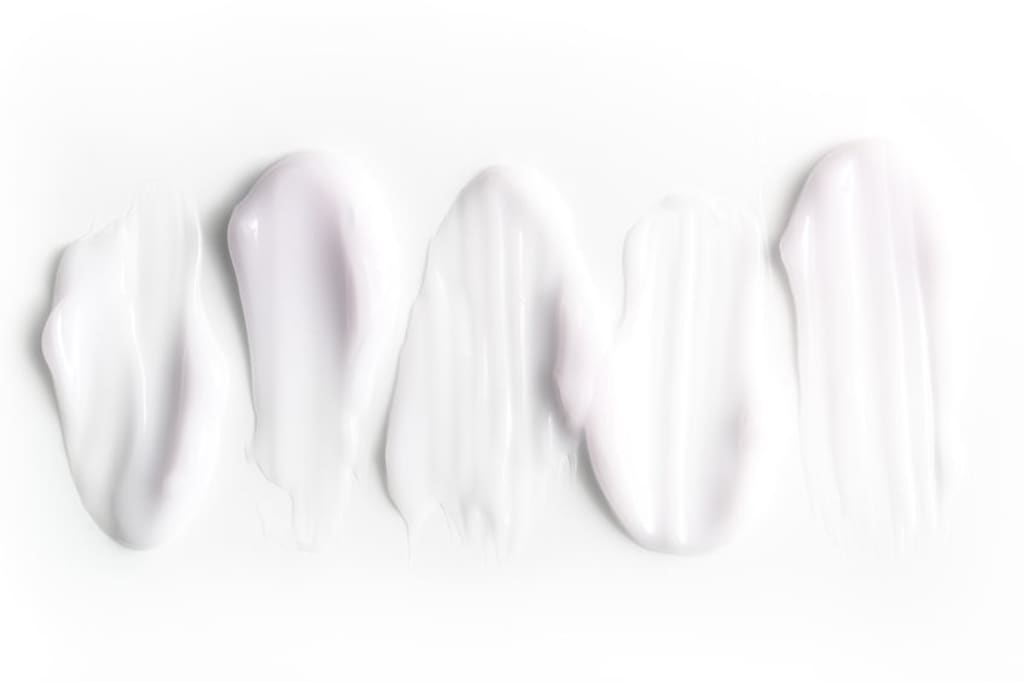
With the onset of the Covid-19 pandemic, those lucky enough to remain financially stable seemed to divert their attention to activities they may have neglected beforehand. With consumers having extra time and nowhere to go, many industries experienced a shift in sales and trends. For the beauty industry, purchases of "at-home" treatments and skincare products naturally spiked. “Too Much Mouth,” a beauty influencer and YouTuber, touches on this is her video "A Sephora Holiday Savings Event Haul With NO Makeup?," below:
As a make-up lover and beauty enthusiast, I couldn’t agree more. Since March, I have only stepped out with a full face of make-up about ten times. Due to my own unique issues, I was forced to pay closer attention to the skin-care products I consumed nine years ago. Nevertheless, the pandemic has also inspired me to pay closer attention to my skin health. As a result, I have become a skin-care stan! I receive compliments on my skin all the time. So, I feel inclined to share my story and the products that I use to keep my skin glowing.
Sidenote: I am not a professional, I'm more of an enthusiast. So, please don't take this article to heart. I am speaking from my own personal experience. I would advise you to complete your own research and base your actions on that. Nonetheless, here are some tips on how to create your own skin-care routine!
Why Create a Skin Care Routine?
First things first, why should you establish a routine? Your skin is the largest organ on your body. WebMD explains that, “the skin protects us from microbes and the elements, helps regulate body temperature, and permits the sensations of touch, heat, and cold.” Therefore, what you choose to consume (inside or out) can have an immense impact on your health. Our skin is a shield, a natural protector. We establish routines for other important areas of our life and our skin should be included in that. Personally, I was forced to create a routine due to suffering from the collective group of skin conditions called eczema.
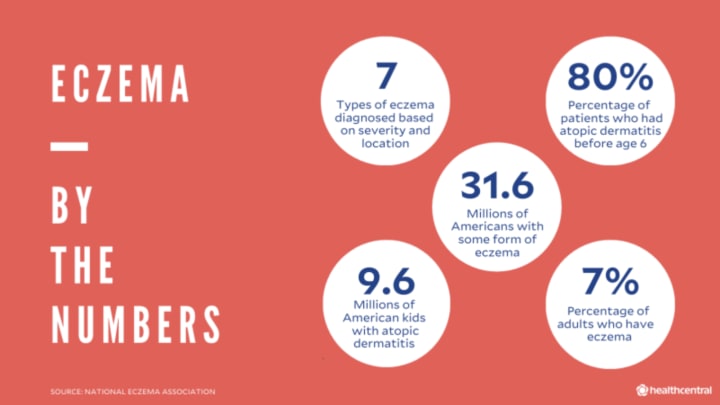
According to the National Eczema Association, eczema is “the name for a group of conditions that cause the skin to become itchy, inflamed, or have a rash-like appearance.” In college, I had an episode in which my skin rejected everything I used at the time. The biggest culprit was my body soap. Have you ever come across the Dove Sensitive Skin Beauty Bar? I’m sure you’ve seen it. Despite the Dove bar being a gentler alternative, my skin still was not happy.
As a result, dry patches developed on my neck and arms that were itchy, scaly, and sensitive to touch. So what did I do? I trashed everything and started from scratch. Eventually, through research and trial and error, I created a routine that improved and maintained the health of my skin. That incident was the catalyst for the love and appreciation I now have for my skin and how I choose to take care if it. It’s a labor of love.
How to Create a Skin Care Routine
Keyword: sebum
“Sebum is a complex mixture of fatty acids, sugars, waxes and other natural chemicals that form a protective barrier against water evaporation...To help protect the outer layer of skin from losing water, the skin's sebaceous glands produce an oily substance called sebum.”
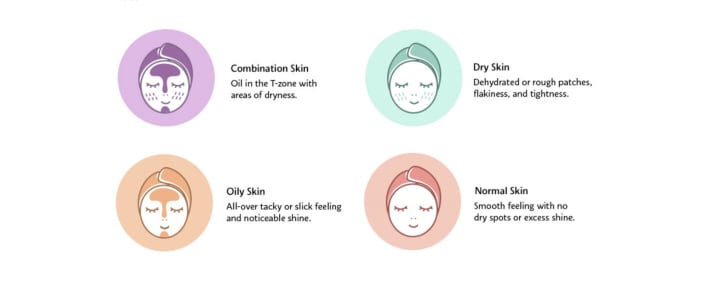
Step I: Identify your skin type
The brands and/or products that you use will largely depend on your skin type. Identifying your skin type is essential to establishing your routine successfully. It’s non-negotiable. Once you determine skin type, the routine will fall in place. Here are the some of the common characteristics of the most popular identified skin types:
Normal: Balanced production of sebum. Smaller pores. Fewer fine lines and wrinkles. Soft, smooth texture
Dry: Inadequate production of sebum. Skin may be rough in texture and/or appearance. May feel tightness of the skin. Subject to dry patches. Signs of aging may appear sooner than other skin types. Less acne-prone
Oily: Skin produces an excessive amount of sebum. Larger pores, acne-prone. A common misconception is that people with oily skin can afford to skimp out adequately hydrating. Please don’t do this. Again, you have to work with your skin, not against it. So to combat that lack of moisture, your skin will produce even more oil. Proceed with caution.
Sensitive: Easily irritated. Prone to inflammation, adverse reactions. Can be subject to redness, itchiness, and/or dryness. Acne-prone.
Combination: Your skin can be a “combination” of the types mentioned above. Typically, skin is drier in certain parts of the face, oilier in others.
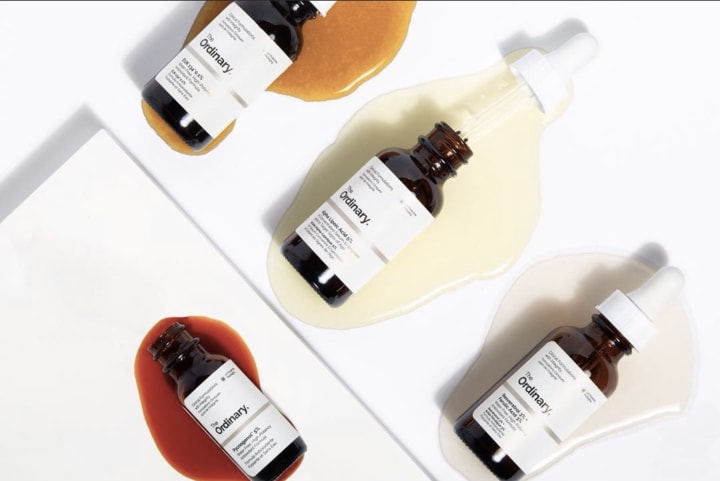
Two popular ways to determine your skin type are the bareface method and blotting method. Skincare brand, Kiehl's, outlines how to use either method to aid you below:
1. The Bare-Face Method
An easy way to determine your skin type is to carefully study your bare skin. You can start by washing your face with our mild foaming cleanser. Then, gently pat dry with a soft towel and refrain from applying any skincare products. After 25-30 minutes, observe your skin. What does it look like? Does it appear shiny on your cheeks and t-zone? You might have oily skin. Or, does your skin feel tight and have flaky areas? Your skin is likely dry. If you see an unbalanced mix of oiliness and dryness, you most likely have combination skin.
2. The Blotting Sheet Method
Another way to determine your skin type at home is to press a clean blotting sheet on various spots of your face. Then, hold the sheet up to a light to see how much oil was absorbed. Your skin type will generally be dependent on how much oil is visible, meaning the more oil on the paper, the more likely you have oily skin. If there is little to no oil visible, you most likely have dry skin. If the blotting sheet reveals minimal oil from your forehead and nose, your skin is probably normal or combination.
2. Identify your Unique Problems
With the onset of winter, my skin is suffering through a bit of a dry spell. Therefore, products that hydrate and combat dullness are at the top of my list. Again, once you know your skin type it will be easier to figure out: what your unique issues are and/or make sense of these issues in relation to skin type. Essentially, by not knowing your skin type or using the wrong products, you can potentially create problems. Common skin issues include: acne, hyperpigmentation, under-eye dark circles, fine lines, wrinkles, age spots, scars, enlarged pores, dullness, texture, etc.

My particular concerns are: sensitivity, acne, discoloration, fine lines, and wrinkles. Here are the products that I use currently to combat them:
Toner + Facial Spray
Moisturizers:
- Sweet Chef Serum Trio
- Sweet Chef Superfood + Vitamin Beauty Oil
- Acure Seriously Soothing Serum Stick
- The Ordinary Retinol 0.5% in Squalane
- The Ordinary Vitamin C Suspension 23% + HA Spheres 2%
- The Ordinary Hyaluronic Acid
- Clean & Clear Persa-Gel 10 Acne Medication
Body Care
- CeraVe Moisturizing Cream
- Aveeno Daily Moisturizing Oil Mist
- Raw Sugar Simply Body Soap Coconut + Mango
- Raw Sugar Sugar Scrub Raw Coconut + Mango
Things To Remember
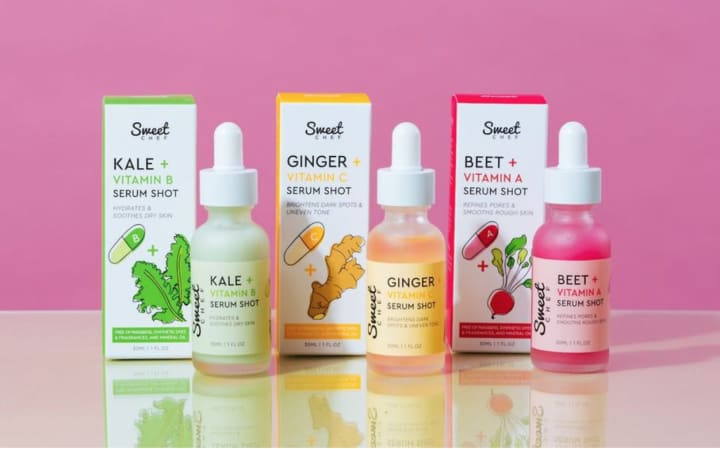
Be Patient
The key to great skin is patience. You have to give yourself and your skin time. It'll probably be a lot of trial and error. Some of your products will not be compatible with one another. A key thing to remember is to refrain from introducing too many products at once. Reason being, it’ll make it easier to determine what products mesh well with your skin and the other products in your routine. If they don’t, discontinue use.
Also, give things time to work! Sometimes, we see immediate results. Sometimes, the results take time. Additionally, don’t be afraid to buy multiple products from the same brands. Products are usually formulated to work together. It isn’t (always) just a scam by the company to trick consumers into purchasing more of their stuff.
Purging vs. Reacting
Another gem is to know the difference between skin purging vs. skin reactions, in reference to introducing new products Purging is easily confused with irritation because the physical results are usually very similar. However, there is a difference. Purging is a sign of an increased cell turnover rate. In essence, in order to get to the new and improved cells, all of the bad, gunky stuff has to come to the surface and be eliminated.
Purging usually presents itself as blackheads or miniature, flesh colored bumps on the skin. If your skin is purging, it’ll occur in areas that you frequently see irritation. Breakouts, or reactions, pop up in areas that you typically don’t see acne. Learn more detailed information about skin purging here: https://www.dearbrightly.com/blog/skin-purging.
Skin care is personal
Despite popular culture, trends, and such, if you don't want to use fifteen different products to take care of your skin, that is OKAY. My mother, for example, only uses moisturizer on her face daily. Throughout her life, she has only worn makeup on special occasions.
That's what works for her, so it’s okay. Am I low-key judging her? Yes! Nevertheless, I am also a firm believer in minding my business. So, there’s that.
I use a ton of products because I am passionate about skincare. I have to be! For example, recently I’ve decided to limit my use of products that contain any artificial and/or added fragrance. It wasn’t planned or researched beforehand. Yet, I always knew that fragrance is a potential irritant.
One day, I stumbled across Aveeno’s Calm + Restore product line in Walmart. I bought and tested out the Oat Gel Cleanser and decided then to avoid fragrances in my skincare products as much as I can. Nevertheless, do what makes sense to you. At the very least, however, invest in a good cleanser, moisturizer, and SPF!
Oh! And like Pharrell says in this video, "Skincare and skin-health is not gender-specific! It's a human, hygienic, considerate, and courteous thing."
Conclusion
All in all, I hope that I have sparked an ounce of curiosity, motivation, whatever! If you leave this article with nothing else, please leave with the notion that skincare can be and should be fun. Enjoy the journey!
At a party, one of my younger cousins assumed I was three years younger than my actual age. That was the confirmation I didn't even know I needed. So, again, take the time and do the research. Taking care of your skin is a personal investment that you’ll never regret.
About the Creator
Reader insights
Outstanding
Excellent work. Looking forward to reading more!
Top insights
Expert insights and opinions
Arguments were carefully researched and presented
Heartfelt and relatable
The story invoked strong personal emotions
On-point and relevant
Writing reflected the title & theme






Comments
There are no comments for this story
Be the first to respond and start the conversation.